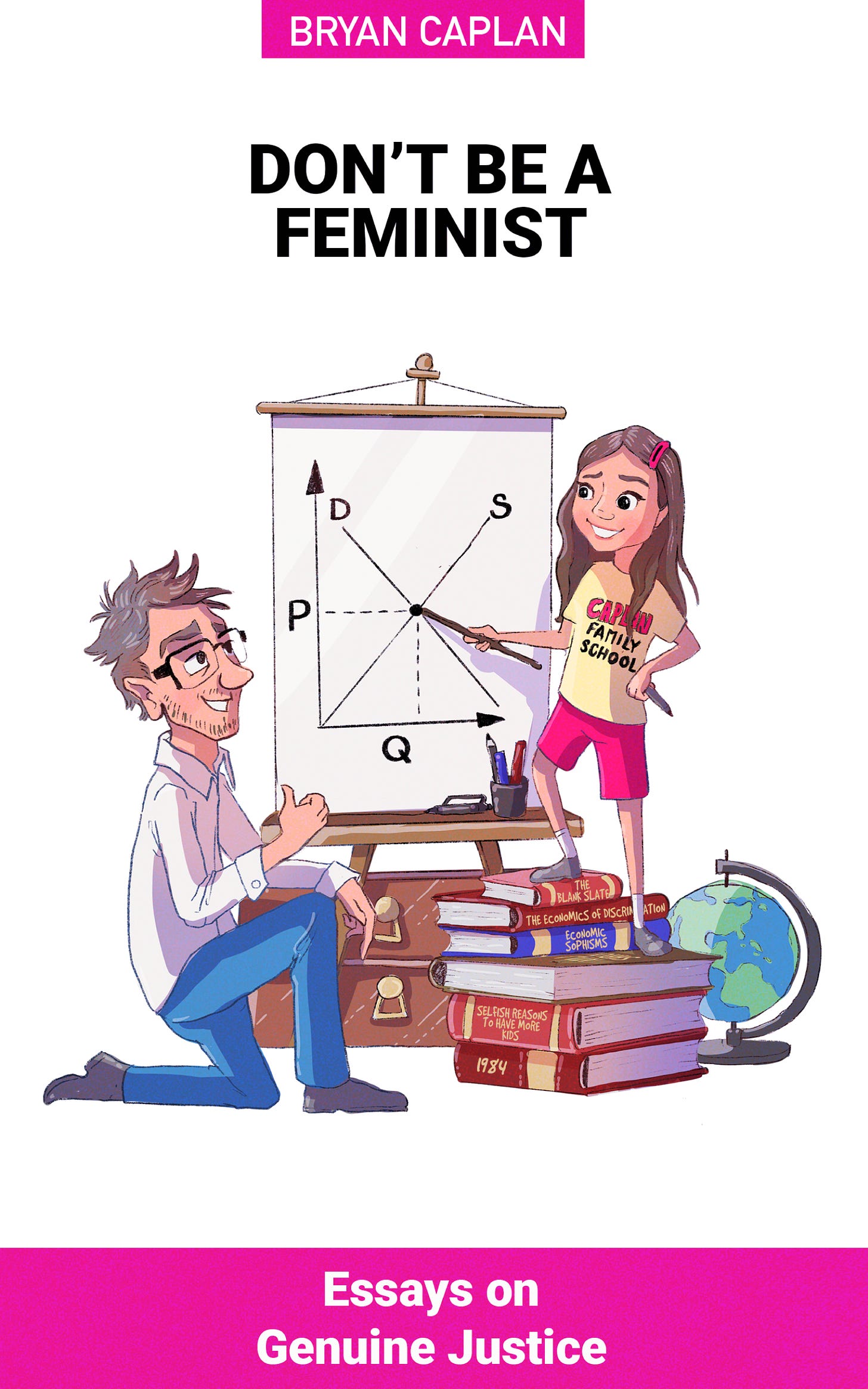
Don’t Be a Feminist: Essays on Genuine Justice, the next installment in my series of collected essays, releases today on Amazon, as both paperback and e-book. Unlike the other works in this series, this one features an all-new lead essay, “Don’t Be a Feminist: A Letter to My Daughter.”
I know some readers find the title needlessly belligerent. One even said she would never buy a book with this title. My request to anyone in doubt is: Let me convince you.
If the title alone troubles you, I predict that actually reading the first essay will change your mind. Why? Because you will see I am not taking the path of sensationalism or trolling. Rather, the title cleanly captures the theme of the lead essay. Namely: That “feminism” as 90%+ of English-speakers use the word is deeply mistaken and severely unjust. Hence, you shouldn’t belong to the feminist movement.
If the substance troubles you, actually reading the first essay probably won’t successfully turn you against feminism. Still, I predict that you will change your mind about my intentions, and concede that my view is not crazy. Both my fans and detractors will agree that this essay is fully in character for me: a typical example of the way that I approach problems and try to connect with readers.
If you won’t take my word for it, how about the great Scott Alexander’s? Here’s his blurb:
“Don’t Be a Feminist: A Letter to My Daughter” is by far the longest essay in the book, but what about the rest of it? Here’s what to expect:
Part I, “The Social Injustice Movement,” dissects the markedly Orwellian variant of radical leftism that has waxed fat over the last decade.
Part II, “Being Beckerian,” pursues the contrarian implications of the economics of discrimination.
Part III, “Everyday Evil,” highlights grave injustices that almost everyone accepts by default, especially neglect of foreigners’ basic human right to trade with willing domestic employers, merchants, and landlords.
The last section, “Clean Hands,” explores the quest to live a just life in our unjust society. Feminists are correct to question our moral complacency; their problem is that they’re hyper-focused on a largely illusory set of moral failings in a world of glaring wrong-doing.
The title essay aside, this is a book of previously-published pieces. You’re free to simply read them in the EconLog archives. The value-added of this series is that I hand-pick the top 5% of 17 years worth of my essays, arrange them by theme, and pleasingly typeset them - once again with Ashruta Acharya’s able assistance.
Bonus: Despite high inflation, I’ve kept the nominal price tags at $12 for the paperback and $9.99 for the e-book.
I wrote Don’t Be a Feminist primarily because I wanted to change my daughter’s life for the better. But I hope that it changes many other lives for the better as well. Especially yours! ;-)


















Just bought the Kindle version and skimmed the first essay. Makes excellent points, starting with the proposition that modern feminism can best be defined as the belief that men are treated more fairly than women are, and then examining the various ways in which we can measure this proposition (i.e. earnings, number of hours devoted to household and childcare needs, male-on-female violence). Using statistics and logic, how can we evaluate the claim that women are treated unfairly?
I was particularly struck by Bryan's observation that both sexes put heavy value on superficial characteristics in choosing romantic partners. Men are prone to evaluate women as "sex objects"---and women are prone to evaluate men as "success objects." Speaking as a woman married to a man and as a mother to both a girl and a boy, Bryan's observation is completely congruent with my life experience.
I hope you are right about the lead. But as a father, I can tell you I'm horrified and disgusted by how girls and women are treated by our society (in general). Physical attractiveness, getting married, and then having children are how women and girls are judged. Boys and men are judged on what they do.